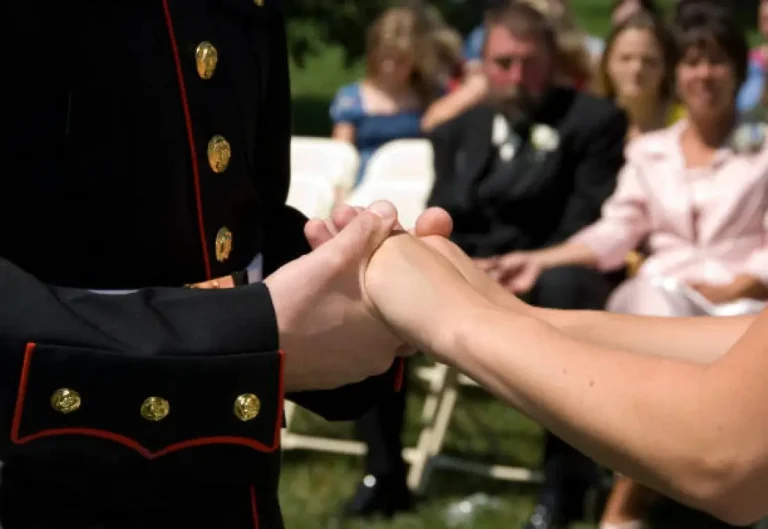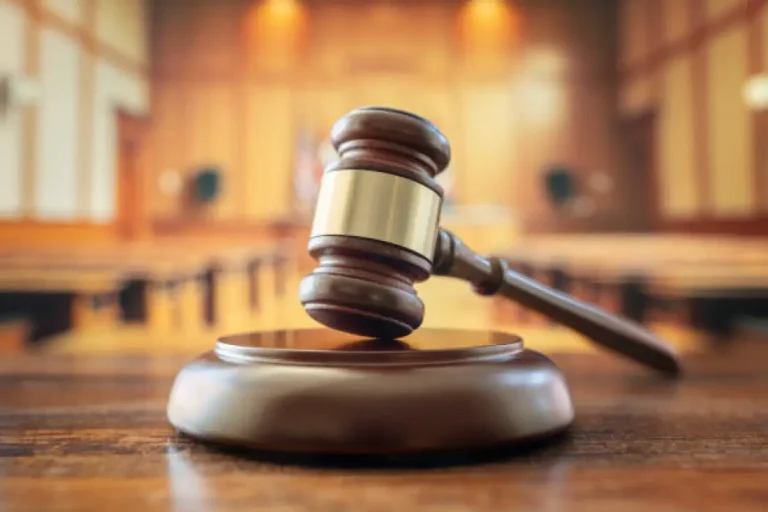In a world where body shaming and discrimination continue to plague our society, sometimes justice arrives in the most unexpected ways. This is the story of how one moment of cruelty on an airplane led to a powerful lesson about respect, dignity, and the consequences of treating others poorly. What started as another routine flight became a defining moment that proved standing up for yourself can create ripple effects of positive change.
Living with Dignity: My Approach to Air Travel
Throughout my adult life, I’ve made peace with who I am. Yes, I’m a plus-size woman, and yes, I live with health challenges that have shaped my body in ways I cannot always control. But rather than allowing these circumstances to limit my life or inconvenience others, I’ve developed strategies to navigate the world with dignity and consideration for everyone around me.
When it comes to air travel, I’ve established a personal policy that reflects both self-respect and consideration for fellow passengers. I always purchase two airline seats. This isn’t a luxury or an indulgence—it’s a practical decision rooted in respect for myself and others. By securing adequate space, I ensure my comfort while eliminating any potential discomfort for neighboring passengers. It’s a solution that allows me to travel with confidence and peace of mind.
This approach has served me well over the years. I’ve traveled extensively for both business and pleasure, and this system has consistently worked without incident. Fellow travelers appreciate having their space respected, flight attendants recognize my thoughtfulness, and I can focus on my journey rather than worrying about awkward interactions or uncomfortable situations.
The financial investment is significant—doubling the cost of every flight—but I consider it an essential expense. It’s similar to any other accommodation people make for their specific needs, whether that’s selecting aisle seats for leg room, booking premium cabins for comfort, or choosing specific airlines for dietary requirements. We all have different needs, and responsible travelers find ways to meet those needs without imposing on others.
The Flight That Changed Everything
On this particular Tuesday morning, I was preparing for a cross-country business trip. The airport was bustling with the usual mix of business travelers, vacationers, and families navigating the complexities of modern air travel. After completing the standard security procedures and grabbing my usual pre-flight coffee, I made my way to the departure gate.
Boarding proceeded smoothly, and I settled into my two window seats as planned. The familiar routine of organizing my belongings, adjusting the seat settings, and preparing for takeoff had become second nature. I slipped on my noise-canceling headphones, opened my tablet to review some work documents, and mentally prepared for the three-hour flight ahead.
The aircraft was filling up steadily, with passengers stowing luggage, settling into their seats, and engaging in the typical pre-flight conversations. The atmosphere was relaxed and unremarkable—exactly what you’d expect from a routine domestic flight on a Tuesday morning.
Everything changed when she boarded.
The Encounter: When Perfection Met Reality
She was undeniably striking—the type of person who commands attention simply by existing. Tall and slender with an impossibly narrow waist, long legs that seemed to go on forever, and the kind of effortlessly perfect hair that belongs in shampoo commercials. Her outfit was carefully curated: form-fitting designer jeans that showcased her figure, a pristine white top that seemed to glow against her tanned skin, and accessories that screamed expensive taste.
Everything about her presentation communicated a single message: “I am perfect, and I know it.”
Initially, I didn’t pay her much attention. Passengers board flights constantly, and unless someone directly interacts with you, there’s little reason to focus on individual travelers. I was absorbed in my pre-flight preparations and content to mind my own business.
But then I felt her presence slow near my row. There was something deliberate about the way she paused, something that made me glance up from my tablet despite my headphones. What I saw was a look of pure disgust—the kind of expression someone might make when encountering something genuinely revolting.
Then came the sound that would forever be etched in my memory: “Ugh.”
It wasn’t subtle. It wasn’t accidental. It was a deliberate, audible expression of revulsion directed specifically at me. The sound cut through my noise-canceling headphones and the ambient noise of the aircraft, landing like a physical blow.
I slowly removed one headphone, hoping I had misunderstood the situation.
“Excuse me, are you talking to me?” I asked, maintaining as much composure as possible.
Her response wasn’t verbal—instead, she fixed me with a stare that communicated volumes. It was the look someone gives to something they consider beneath their notice, a stain on an otherwise pristine surface. Her eyes traveled over me with unconcealed disdain, taking inventory of everything she found objectionable about my appearance.
The Confrontation Escalates
What happened next revealed the true depth of her entitlement and cruelty.
“I’m not sitting next to you,” she declared with the authority of someone accustomed to having her demands met without question.
I took a deep breath, calling upon years of experience dealing with difficult situations and unkind people. “You don’t have to,” I replied calmly. “These are my seats—both of them. Here are the tickets if you’d like to see them.”
I reached into my bag and produced both boarding passes, clearly showing that I had legitimately purchased and was entitled to occupy both seats. The documentation was irrefutable evidence that I had followed proper procedures and respected airline policies.
But logic and evidence weren’t going to deter someone determined to create a scene.
“How can someone let themselves go like this?” she continued, her voice growing louder and more aggressive. “Have you seen yourself in a mirror?”
The words hit like physical blows. I’ve heard similar comments before—whispered behind my back on the street, muttered by strangers in stores, typed anonymously in online comment sections. But this was different. This was face-to-face, personal, and inescapable. We were trapped together in this confined space, and she was using that captivity to unleash her venom.
For a moment, everything went dark. The familiar sting of humiliation washed over me, accompanied by the complex emotions that come with being publicly shamed for your appearance. Anger, hurt, embarrassment, and frustration battled for dominance in my chest.
But I had learned, through years of experience, how to navigate these moments with dignity.
“I have health issues,” I said calmly, maintaining eye contact despite the fire burning in my cheeks. “And I don’t owe you any explanation.”
I turned toward the window, hoping that by removing my attention from her, she would lose interest in the confrontation and move on to her assigned seat. But she was just getting started.
The Public Humiliation Intensifies
Rather than de-escalating, her behavior became increasingly aggressive and theatrical. Her voice grew louder, deliberately designed to attract the attention of other passengers and create maximum embarrassment for me.
“People like you shouldn’t even be flying,” she announced to anyone within earshot. “It’s unnatural!”
The cabin, which had been filled with the typical sounds of passengers settling in for their flight, began to quiet as people turned to observe the unfolding drama. I could feel dozens of eyes focusing on our row, some filled with curiosity, others with discomfort at witnessing such a public confrontation.
The humiliation was intentional and calculated. She wasn’t just expressing her personal disgust—she was attempting to rally other passengers to her cause, to create a mob mentality that would pressure me to leave or somehow disappear. It was psychological warfare conducted in the most public possible venue.
But something inside me shifted in that moment. Years of tolerating similar treatment, of absorbing insults and accepting discrimination, had reached a breaking point. I realized that remaining silent and hoping for the situation to resolve itself wasn’t going to work. This woman had chosen to make me her target, and she was escalating her attack with each passing moment.
The old me might have tried to shrink into invisibility, to minimize my presence and wait for the storm to pass. But this version of me—strengthened by years of learning to advocate for myself and armed with the knowledge that I had done nothing wrong—was ready to fight back.
Taking Action: The Moment of Truth
My hands were trembling as I reached for the call button, but my resolve was crystal clear. I pressed it firmly and waited for assistance, knowing that this moment would define not just this flight, but potentially how I would handle similar situations for the rest of my life.
The flight attendant who responded was everything you’d want in a professional: tall, confident, impeccably uniformed, and radiating the kind of competent authority that comes with years of handling difficult passenger situations. Her name tag read “Sarah,” and her expression was alert and ready to address whatever issue had prompted my call.
“Is something wrong?” she asked, her voice professional but warm.
“Yes,” I replied, surprised by the steadiness in my own voice. “I’d like to report harassment and verbal abuse.” I held up both of my boarding passes. “This passenger is insulting me and demanding that I give up my legitimately purchased seats.”
Sarah’s initial expression showed slight surprise—these situations, while not unheard of, aren’t exactly routine. But as she took in my calm demeanor, my documentation, and the obvious distress I was trying to control, her professional training kicked into high gear.
She turned to address my tormentor. “Ma’am, may I see your ticket, please?”
The entitled passenger rolled her eyes with exaggerated annoyance, as if being asked to produce her boarding pass was an unreasonable imposition. She handed it over with the dramatic flourish of someone who believed she was being persecuted for trying to do the right thing.
Sarah examined the ticket carefully, and I watched as understanding dawned on her face. The passenger’s assigned seat wasn’t even in my row. In fact, it was several rows away, in a completely different section of the aircraft. This woman had approached me, initiated this confrontation, and created this entire scene despite having no legitimate claim to any seat near mine.
Justice Served: The Tables Turn
“Ma’am,” Sarah said firmly but politely, “I need you to proceed to your assigned seat immediately.”
But the entitled passenger wasn’t finished with her performance. Her eyes flashed with indignation, and her voice rose to a level that ensured everyone in the surrounding rows could hear her clearly.
“This is discrimination against slim people!” she declared, as if she were a victim of some systemic oppression. “I shouldn’t have to sit anywhere near someone like that!”
She gestured dramatically in my direction, as if my mere presence was an affront to decent society. Her performance was so over-the-top that it might have been comical if it weren’t so cruel and dehumanizing.
But her theatrics had an unintended consequence. Instead of rallying support for her cause, her extreme behavior was exposing the ugliness of her character to everyone watching. Other passengers were beginning to shake their heads, whisper among themselves, and cast disapproving looks in her direction.
Sarah maintained her professional composure, but I could see the determination in her eyes. “Ma’am, I need you to take your assigned seat now, or we’ll need to involve the captain.”
The threat of escalation to the captain should have been enough to end the situation. Most reasonable passengers, even those having a bad day, would recognize that continuing to argue with the flight crew was not going to end well for them.
But this passenger was far from reasonable.
She continued arguing, her voice growing shriller with each exchange. She demanded to speak to supervisors, threatened to file complaints with the airline, and insisted that she was being treated unfairly. Her behavior was becoming increasingly disruptive, and other passengers were growing visibly uncomfortable with the ongoing scene.
The Captain’s Decision: Ultimate Consequences
What happened next exceeded even my most optimistic expectations for justice.
After several more minutes of increasingly disruptive behavior, a new figure appeared in our section of the aircraft. The head flight attendant, distinguished by additional stripes on her uniform and an air of absolute authority, approached our row with purposeful strides.
“Ma’am,” she addressed my tormentor with ice-cold professionalism, “by the captain’s decision, you are being asked to leave the aircraft immediately due to misconduct and failure to comply with crew instructions. Please gather your belongings.”
The color drained from the entitled passenger’s face as the full weight of the situation hit her. Being removed from a flight is serious business—it goes on your record with the airline, can affect future travel, and often results in being stranded at your departure city while trying to find alternative transportation.
“You can’t be serious,” she stammered, her earlier confidence evaporating. “I haven’t done anything wrong!”
But the damage was done. Her behavior had crossed lines that airlines take very seriously. Disrupting other passengers, refusing to follow crew instructions, and creating a hostile environment are all grounds for removal, and she had managed to do all three in spectacular fashion.
The protests, threats, and attempts at negotiation that followed were futile. Within ten minutes, she was escorted off the aircraft by airline personnel, her designer luggage trailing behind her and her perfect hair slightly disheveled from the stress of the situation.
As the aircraft door closed behind her, a palpable sense of relief settled over the cabin. Passengers who had been holding their breath during the confrontation began to relax, and normal pre-flight conversations resumed.
Unexpected Kindness: The Power of Human Decency
After takeoff, when the seatbelt sign had been turned off and normal service had begun, Sarah approached my row with a warm smile and a small tray.
“We’re sorry for that incident,” she said quietly, setting down a complimentary dessert and a handwritten note. “And thank you for handling the situation with such composure.”
The note, written on airline stationary in careful handwriting, simply read: “You are strong. And worthy. Thank you for your kindness.”
The gesture was small, but its impact was enormous. In a world where acts of cruelty often feel more common than acts of kindness, this simple acknowledgment of my dignity and worth meant everything. It validated my decision to stand up for myself and confirmed that I had handled the situation appropriately.
But the kindness didn’t stop there. Throughout the remainder of the flight, other passengers made subtle gestures of support. A woman across the aisle smiled warmly when we made eye contact. A businessman nodded approvingly when I thanked the flight attendant for her assistance. A family with young children offered to share their snacks when they saw me reading.
These small interactions reminded me that most people are fundamentally decent. While one person’s cruelty had dominated the early part of my flight, it was ultimately overwhelmed by the kindness and support of many others.
Reflections on Body Shaming and Social Justice
This incident illuminated several important truths about our society’s relationship with body image, discrimination, and personal responsibility.
First, body shaming remains a pervasive problem that affects millions of people daily. Despite growing awareness about body positivity and acceptance, many individuals still feel entitled to comment on, judge, and discriminate against others based on physical appearance. This behavior isn’t just rude—it’s a form of harassment that can have serious psychological and emotional consequences for its victims.
Second, the assumption that being overweight is always a choice or a moral failing demonstrates a fundamental misunderstanding of health, genetics, and the complex factors that influence body weight. Many people struggling with weight issues are dealing with medical conditions, genetic predispositions, medications, or other factors beyond their immediate control. Even when lifestyle choices are involved, that doesn’t give strangers the right to act as judges and prosecutors.
Third, the incident revealed the power of standing up for yourself when faced with discrimination. For years, I had absorbed similar treatment silently, hoping that ignoring the problem would make it go away. But silence in the face of abuse often enables the abuser and teaches them that their behavior is acceptable. By speaking up and demanding appropriate action, I not only protected myself but potentially prevented this individual from targeting someone else in the future.
The Broader Impact: Why This Matters
The consequences this passenger faced—being removed from the flight and potentially banned from future travel—serve as an important reminder that actions have consequences. In our interconnected world, treating others poorly can have far-reaching implications for your own life and opportunities.
Airlines, like many businesses, are increasingly recognizing that protecting all customers from harassment and discrimination isn’t just morally right—it’s good business. Passengers who feel safe and respected are more likely to choose that airline again, recommend it to others, and contribute to a positive travel experience for everyone.
The incident also demonstrated the importance of policies and procedures that protect vulnerable individuals from discrimination. The flight crew’s quick, decisive action sent a clear message that harassment based on physical appearance will not be tolerated. This kind of institutional support is crucial for creating environments where everyone can participate fully in society without fear of humiliation or abuse.
Personal Growth and Lessons Learned
This experience taught me several valuable lessons about self-advocacy, personal dignity, and the importance of refusing to accept mistreatment.
I learned that preparing for discrimination—by purchasing two seats, having proper documentation, and knowing my rights—wasn’t just practical but empowering. When the confrontation occurred, I was able to respond from a position of strength rather than defensiveness.
I discovered that most people, when faced with clear evidence of wrongdoing, will support the victim rather than the aggressor. The flight crew, other passengers, and airline staff all recognized that I was being treated unfairly and took appropriate action to address the situation.
Most importantly, I realized that standing up for yourself doesn’t require aggression, retaliation, or stooping to your opponent’s level. Calm, factual presentation of the situation, coupled with clear requests for appropriate action, can be far more effective than emotional responses or defensive arguments.
The Ripple Effect: Creating Positive Change
The impact of this incident extended far beyond a single flight. By refusing to accept discriminatory treatment and working within appropriate channels to address the problem, I contributed to a broader cultural shift toward accountability and respect.
The passenger who was removed from the flight learned that her behavior has consequences. While I don’t wish ill on anyone, I hope this experience prompted some self-reflection about how she treats others and the impact of her words and actions.
The flight crew gained experience handling discrimination complaints, which will serve them well in future situations. Their professional, decisive response showed other passengers that the airline takes harassment seriously and will take action to protect all customers.
Other passengers witnessed an example of how to respond to discrimination with dignity and effectiveness. Some may have been inspired to speak up in similar situations rather than remaining silent bystanders.
The story, when shared, provides encouragement and guidance for others who face similar challenges. It demonstrates that you don’t have to accept mistreatment and that there are effective ways to advocate for yourself when faced with discrimination.
Moving Forward: A New Perspective on Travel and Life
This experience has fundamentally changed how I approach air travel and, more broadly, how I navigate challenging social situations. I now travel with increased confidence, knowing that I have the tools and support necessary to handle difficult encounters effectively.
I’ve also gained a deeper appreciation for the kindness of strangers and the power of institutional policies that protect individual dignity. While discrimination and cruelty certainly exist, they are often overwhelmed by the basic decency of most people when given the opportunity to do the right thing.
Perhaps most importantly, I’ve learned that seeking approval from others isn’t necessary for living a full, dignified life. I don’t need everyone to accept or approve of me, but I do deserve to be treated with basic respect and courtesy. When that respect isn’t forthcoming, I now have the confidence and skills to demand it.
Conclusion: Standing Up for Dignity and Respect
This incident began as another example of the casual cruelty that many people face daily based on their physical appearance. It could have ended with me silently enduring humiliation and allowing a bully to dominate the situation through intimidation and harassment.
Instead, it became a powerful demonstration of the importance of self-advocacy, the effectiveness of appropriate institutional responses to discrimination, and the ultimate triumph of dignity over cruelty. By refusing to accept mistreatment and working within proper channels to address the problem, a potentially devastating experience became an empowering victory.
The woman who tried to humiliate me learned that actions have consequences. The airline crew demonstrated their commitment to protecting all passengers from harassment. Fellow travelers witnessed an example of how to respond to discrimination with grace and effectiveness.
And I learned that standing up for yourself isn’t just about protecting your own dignity—it’s about contributing to a culture where everyone is treated with respect and basic human decency.
In a world where body shaming and discrimination remain serious problems, every instance of successful resistance matters. Every time someone refuses to accept mistreatment, speaks up for themselves, and demands appropriate action, they make it a little easier for the next person facing similar challenges.
I’m not seeking approval or validation from others. I’m simply tired of living by other people’s standards and accepting their judgments about my worth as a human being. This flight taught me that I don’t have to accept that treatment—and neither does anyone else.
Sometimes justice comes in small packages, delivered by flight attendants with kind hearts and policies that protect human dignity. Sometimes standing up for yourself creates ripple effects that extend far beyond the immediate situation. And sometimes, the person who tries to tear you down ends up learning more about consequences than they ever intended.
This wasn’t revenge—it was accountability. And in a world that often lacks both, that made all the difference.

Emily Johnson is a critically acclaimed essayist and novelist known for her thought-provoking works centered on feminism, women’s rights, and modern relationships. Born and raised in Portland, Oregon, Emily grew up with a deep love of books, often spending her afternoons at her local library. She went on to study literature and gender studies at UCLA, where she became deeply involved in activism and began publishing essays in campus journals. Her debut essay collection, Voices Unbound, struck a chord with readers nationwide for its fearless exploration of gender dynamics, identity, and the challenges faced by women in contemporary society. Emily later transitioned into fiction, writing novels that balance compelling storytelling with social commentary. Her protagonists are often strong, multidimensional women navigating love, ambition, and the struggles of everyday life, making her a favorite among readers who crave authentic, relatable narratives. Critics praise her ability to merge personal intimacy with universal themes. Off the page, Emily is an advocate for women in publishing, leading workshops that encourage young female writers to embrace their voices. She lives in Seattle with her partner and two rescue cats, where she continues to write, teach, and inspire a new generation of storytellers.









